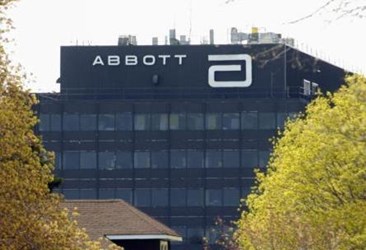Abbott's Newly Launched Devices Power Growth
By Jof Enriquez,
Follow me on Twitter @jofenriq

Abbott rode the successful launch of several medical devices to post robust sales growth of 6.4 percent to $1.37 billion in the second quarter, lifting overall sales by 3.2 percent to $5.3 billion that beat expectations.
“It was a good quarter,” Abbott CEO Miles D. White stated in an SEC filing. “We’re particularly pleased with the steady cadence of new product approvals and recent launches that are contributing to growth, including FreeStyle Libre, MitraClip, Absorb and Symfony.”
Abbott in 2014 launched the FreeStyle Libre skin-worn glucose sensor in Europe where it has seen strong demand since. Miles told analysts in a conference call that there are now more than 125,000 patients using the device in Europe, and that he estimates U.S. FDA approval to come in the next six to eight months, or around the first quarter of 2017.
MitraClip, the world's first transcatheter mitral valve repair device, posted double-digit growth in the second quarter on increased adoption uptake and utilization in centers, said Miles. Along with market share gains in Abbott's core stent business, and double-digit growth in the Endovascular unit, MitraClip helped boost Vascular product total sales by 8.3 percent.
This month, Abbott received FDA approvals for Absorb, the first fully-dissolving heart stent, and for Tecnis Symfony, the first intraocular lens (IOL) that provides patients with an extended depth-of-focus following cataract surgery.
Miles earlier had vowed to strengthen Abbott's medical device business by ramping up the marketing of niche products and building a steady pipeline. He believes that Abbott's ongoing acquisition of St. Jude Medical will help achieve that end.
"I think that they've got a great pipeline of products. I think they've got a lot of good products," Miles told analysts during the call.
St. Jude Medical on Wednesday said strong demand boosted revenue 11 percent in its latest quarter, reports The Wall Street Journal.
"We know how to integrate it, we know how to manage it, we know how to do well with it, we know how to add value to it, we know what the breadth of offering is, we know the quality of their pipeline and the quality of their people," added Miles, who hinted that people who will eventually run the combined device business will be a balanced mix from both companies. "You don't just buy it, put it in the portfolio and leave it alone. You buy it and you put the best management you can in place and you run it the best you can."
He did mention in the call that St. Jude could benefit from launching an MRI-compatible CRM product soon to keep up with competitors, and from resolving the reimbursement status of CardioMEMS faster.
Miles expects to close the transaction before year-end, as the company prepares to respond to a second request of information from the U.S. Federal Trade Commission, reports Reuters.
While Miles is optimistic of a smooth integration with St. Jude, he did not enthuse about Abbott's planned acquisition of point-of-care diagnostics maker Alere, which rejected Abbott's offer to terminate the deal in April.
"No matter what kind of teeth grinding and gnashing we go through with them here or they are going through, et cetera, one thing I'm certain of is that they are trying to do everything they can their way to address the challenges in the company. I don't think otherwise. So whether it all works out the way it originally planned or not, I don't know. We can't predict," Miles said during the call.
